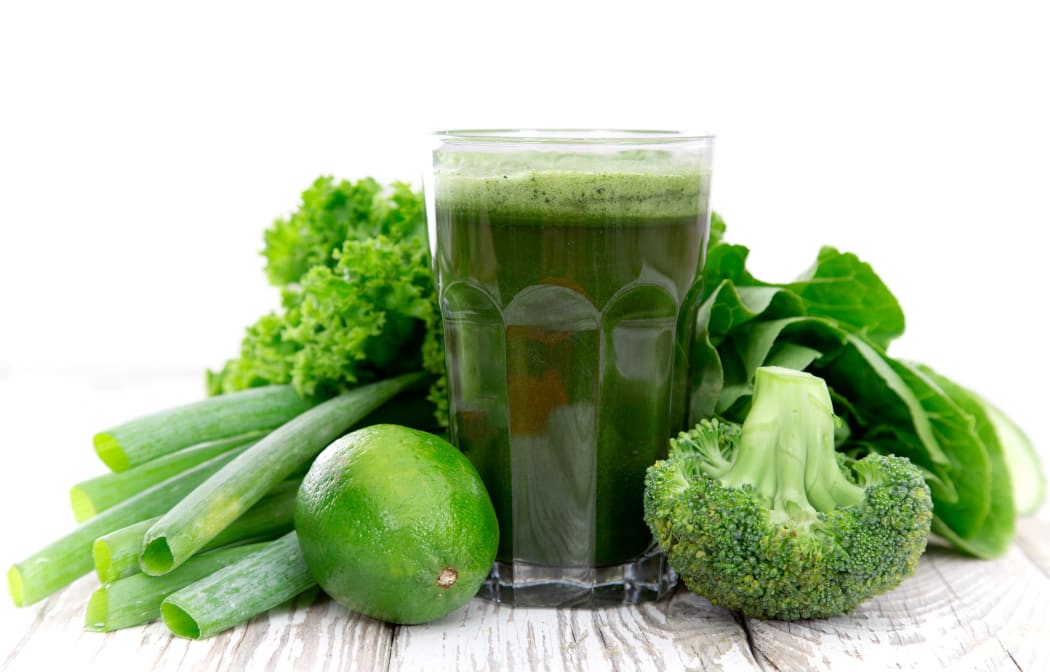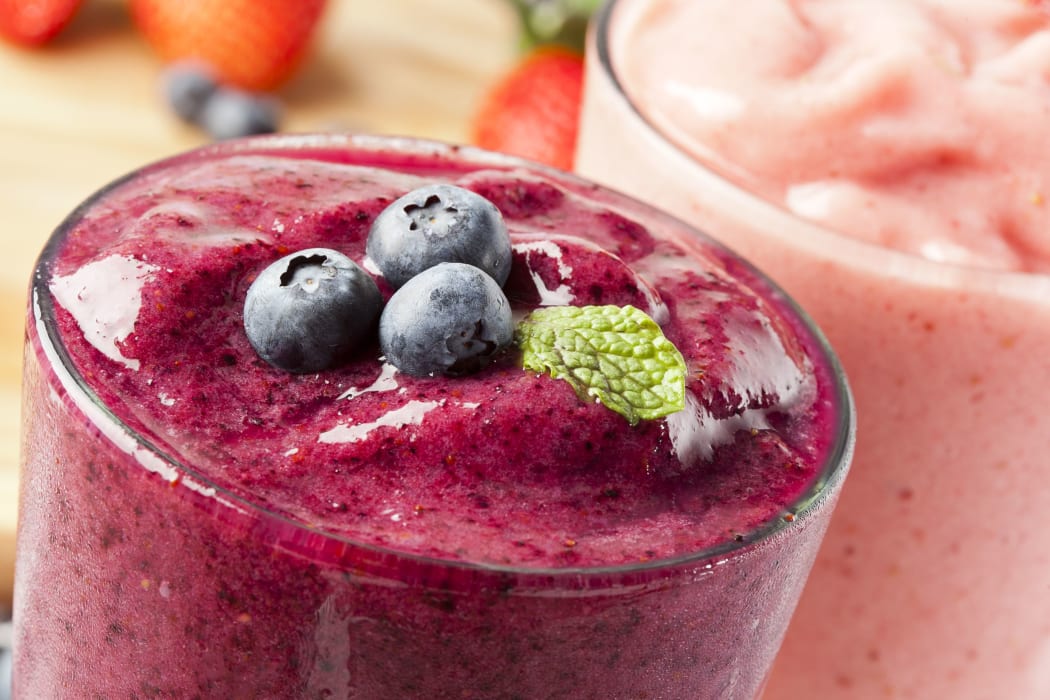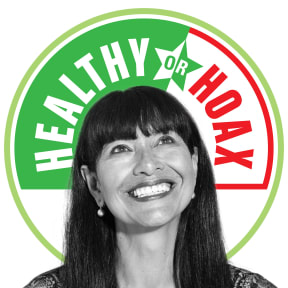Greens powders are firmly entrenched as part of the smoothie craze, but in episode three of Healthy or Hoax we find out there's one ingredient in there you might not expect.

Photo: 123rf
I usually have lots of fresh greens as part of my regular diet and you know what, I rather like eating them. So I volunteered when someone was needed to give greens powder a go for this Healthy or Hoax podcast.
The powder was supposed to give me concentrated greens, so I didn't have to eat the real stuff. In other words, it was the vegetable equivalent of a short cut; a cheat sheet.
But for me it’s a question of palatability. Basically the powder tasted like ... well, it's not good.
When you put it in a smoothie it tends to combine with the other vegetables and fruits and produce a colour something like fresh concrete or, let's be honest, the poo of a sick baby. Worse, should you ignore the colour, close your eyes and just drink it, you could only taste the powder.
As to the health benefits, I was not convinced – certainly I didn’t feel any better than I usually do, given my usual fairly healthy diet.
It also costs a lot. Obviously I wasn't partaking in a serious scientific experiment so it's hard to really gauge the benefits, or lack thereof. Using my mother’s medical logic (or was it just a con trick): “It tastes awful so it must be doing you an awful lot of good."

Photo: 123rf
However, Canterbury University Professor of Toxicology Ian Shaw said that was not necessarily the case.
"These plants [in greens powders] are being grown in all sorts of different soils in different parts of the world... and they might contain other things that we don't expect them to contain, like arsenic."
Studies in the United States have shown greens powders there contained low levels of arsenic - a naturally occurring poison.
Dr Shaw said there was no requirement for risk assessment testing on greens powders sold in New Zealand because they're classified as a food, not a medicine.
"The risk is incredibly low.
"Arsenic is a carcinogen - it causes cancer - but only on long, long, long-term exposure. So what we try to do is keep our arsenic intake as low as possible for that reason, not because it's going to kill us stone dead, but because of the effects it may have in the long term."
Auckland University Professor of Nutrition David Cameron-Smith said there had been no research about the effectiveness of greens powders relative to their source ingredients.
"When you turn it into powder - and it has to be done under vacuum, and under heat, and sometimes there are chemicals applied in the process of breaking it down into that fine powder - the net result in terms of its biological benefit to you simply hasn't been identified."
He said if you were looking to get your five plus a day, you'd probably be better off sticking to the whole foods where possible.
Additional reporting by Kate Pereyra Garcia

Healthy or Hoax is a RNZ podcast series looking into the latest exercise, nutrition and well-being fads to see whether there's any evidence to back up their claims. Hosted by Carol Hirschfeld.

